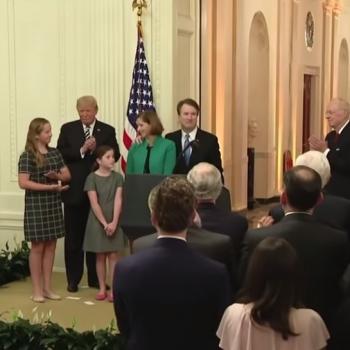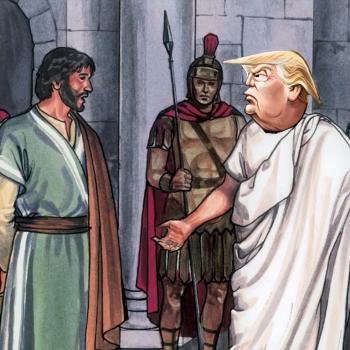Lately I’ve been attempting to spark discussion around the internet on the use of Christian labels, and I’m rather pleased such a robust discussion is taking place on blogs and in Facebook groups on this issue. I think the use of labels is a critical issue facing the next generation of Jesus followers, and argue in my upcoming book, Christian Outsiders, that we really would bode well to transition into a Christianity that is “beyond the labels.”
First, there was a provocative piece on where I find some discomfort with some aspects of the Progressive label, a post which sparked this follow-up interview at ProgressiveChristianity.org that I hope you’ll check out, here. Next of course, I dealt with the areas where I feel evangelical Christianity had me “left behind” (an attempt at being punny), a post which people also really identified with in many ways.
However, this morning I realized there was one important (and glaringly obvious) label that I hadn’t dealt with yet: the label of a “fundamentalist.”
This is a critical term to wrestle with and understand because it is so often misunderstood or perhaps better stated, misused– often being used as a simple tool to dismiss people or ideas without actually wrestling with the merits of their belief. I for one, have been guilty of this, which is why I want to dish up a plate of humility to really look at what the term means, so that we can accept a hard fact:
We’re all fundamentalists in the end.
The term fundamentalist at it’s deepest core would simply describe someone who holds to a foundational belief they hold as being true (truth= that which corresponds to reality). In this regard, whatever core beliefs or assumptions guide a person are their fundamentals, and we all have them.
The term was popularized in the early 20th century by a group of Christians who sat down and affirmed 5 things they believed were foundational to the Christian faith. These five things (biblical inspiration, virgin birth, atonement for sin, bodily resurrection of Christ, and affirmation of the miracles of Christ) became their 5 fundamentals, and thus they became know as “fundamentalists.” Over the course of time the term fundamentalist became a pejorative used to describe, not people who hold certain ideas or beliefs to be fundamental, but a way of describing the over-the-top obnoxious way this group of people held their beliefs. When we look at the historical use and morphing of the term, we can arrive at two basic ways to understand and use the term: (a) a person or people who have a belief or some beliefs that are core or “fundamental” to their worldview, and (b) a person who holds their worldview in an obnoxious, dogmatic, arrogant way.
Where we all are fundamentalists lies in option (a) because we all have some things that we believe are foundational. Where we are all at risk of becoming fundamentalist lies in option (b), as it is easy to become arrogant and dismissive of others who don’t share our fundamentals, whatever they may be.
But let’s be clear: we all have fundamentals. Atheists have the fundamental belief that there is no God or no evidence to warrant believing in God. Theists have the fundamental belief that there is a God. Deist have the fundamental belief that there is a God but that he’s rather detached from creation. Those within the historic orthodox Christian faith hold to the fundamentals that are expressed in the Nicene and Apostle’s Creed. Anabaptists hold to the fundamental belief that violence is wrong. Evangelicals hold to all sorts of fundamental beliefs, and Progressive Christianity does too.
Even if one were to say, “I don’t think anything should be a fundamental belief” such a position would still be a fundamental belief!
Personally, I think we need not be afraid of admitting that we all have fundamental beliefs that we hold as true– because we all do, whether we will admit it or not.
We are all fundamentalists in the end.
Where I think we need to be cautious is in the other meaning of fundamentalist– not the fundamentalist we all are, but the fundamentalist we all can easily become on any given day.
We all are at risk of holding our fundamental beliefs in a ways that permeate arrogance, in ways that dismiss and marginalize others who hold to different fundamentals, and in ways that are just over all, very unhelpful or unloving.
My prayer for us is that we won’t be afraid to admit that yes, we all hold some things to be foundationally true even if it’s just the belief that nothing is foundationally true.
Instead of fearing this aspect of fundamentalism– the aspect we all are part of– may we be far more concerned with avoiding the aspect of fundamentalism that is toxic and destructive: holding our fundamental beliefs in an obnoxious, arrogant, or an unloving way.
image via freedigitalphotos.net












